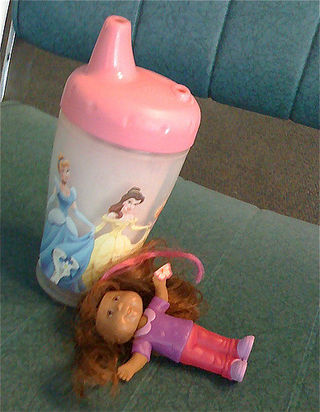Recently, there was a picture online that showed a young child in excruciating pain. The father, a photographer, took the picture of his daughter who was within weeks of dying from a neuroblastoma. It was a raw picture capturing her intense pain. It was taken to raise awareness of pediatric cancer.
Comments about the article were diverse. Some readers expressed their compassion for the family, while others were angry and condemning the father for having taken the picture. Everyone suffers grief in their own way. In part, this was the father’s way of grieving as well as letting others know how painful children’s cancer can be. He also hoped that the picture might further the movement to find a cure for childhood cancer.

The worst thing that can happen to any parent is the loss of a child, regardless of the age of the child. People are uneasy and reluctant to talk about death and certainly not about the death of a child. Many people will pull away from a family that has suffered the death of a child, as though somehow having a child die is contagious. Families who have lost children will say that others “just don’t get it.” They are expected to move on and get over it when that will never happen.
The pain will wax and wane but it is always there. With time, the pain will lessen enough to allow the parent to return to the living but their child is never far from their mind. Compassionate Friends, a national organization, is a place that parents can go and be understood, as everyone there has lost a child.
Grief can vary depending on how the child died. Some children will die from violence, some from cancer or other medical diseases. There are also miscarriages and stillbirths. These tend to be the less visible losses but can be just as painful. I have older adults who will talk about the loss of a child to stillbirth 40 years prior and how old the child would currently be if he had lived. The disappearance of a child has its own special torment. The parents never give up hope that their child will return someday. These parents live with intense anxiety and fear. The uncertainty can be unbearable at times.
For parents who have lost a child, the pain is indescribable. They suffer depression, anger, guilt, despair, and loneliness. Even years later, I have moms say they cannot wait until they die so they can see their child again. They are not suicidal but long for that reconnection. Of the many parents I have worked with, the vast majority have a strong belief that they will be reunited with their child on death.
The death of a child can also lead to marital stress. If there have been unresolved issues in the relationship, they can reemerge often with greater intensity. Different grieving styles of husband and wife can also cause hurt and misunderstanding, exacerbating the pain they already feel. While not all of these marriages end in divorce, a large number of them do. I frequently ask parents who have lost a child not to make any major life-changing decisions for at least the first year.
All parts of the parents’ lives are impacted by the loss. In addition to the emotional aspects of grief, there are also the physical and spiritual components. As with most grief, some will be angry at God while others will find strength in their religious beliefs. Physically, the effects of stress can wreak havoc with sleep, appetite, and concentration, lowering our immune system and making us more vulnerable to illness.
I believe that people tend to avoid grieving parents, in part because they do not know what to say or do and do not want to upset them further. Below are some of the comments parents have told me they would find helpful from others:
- "Please use my child’s name when you speak to me."
- "Share stories with me about my child that I may not know."
- "I am doing the best I can, so please don’t judge or criticize me."
- "Just listen to me. Let me talk and show my feelings. I can’t take care of you by pretending I am fine."
- "It really upsets me when you say you know how I feel. If you have never lost a child, you don’t have a clue."
- "Let me do things in my own way and time."
- "Please don’t avoid me; I am in enough pain without feeling abandoned."
- "I am never going to get over this so stop telling me I have to."
When talking to grieving parents, what we say can often make them feel worse. We cannot take away their pain, but by following these guidelines we can offer them some comfort and support.


